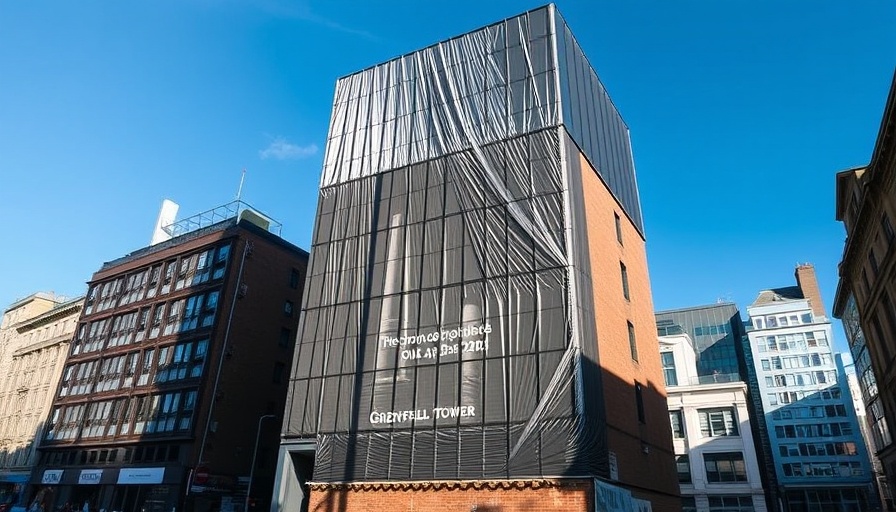
Licensing Change: A New Era for Principal Contractors
The recent government decision to license principal contractors in response to the Grenfell Inquiry marks a significant step towards ensuring safety and accountability in the construction industry. As outlined in a detailed report, the government has committed to implementing reforms over the next three years, aiming to enhance standards and transparency in how the higher-risk buildings are constructed and refurbished.
Understanding the Grenfell Tragedy's Implications
The Grenfell Tower fire in 2017 was not merely a tragic event; it was a wake-up call about the systemic failures within the construction industry. The inquiry uncovered severe deficiencies in fire safety regulations, product safety, and contractor accountability, leading to the loss of 72 innocent lives. Informed by these findings, the government has vowed to address all 58 recommendations put forth in the inquiry’s final report, prioritizing a new culture of safety and responsibility.
Closer Scrutiny of the Construction Industry
Among the key reforms is the investigation of seven companies implicated in the Grenfell report, including major suppliers like Kingspan and Arconic. These organizations will face potential bans from government contracts if the investigations under the new Procurement Act reveal wrongdoing. This level of scrutiny is essential in driving accountability and ensuring that serious violations don’t go unpunished.
Establishing a Stronger Regulatory Framework
The introduction of a licensing scheme for principal contractors is a bold move. By mandating licenses for firms involved in higher-risk structures, the government aims to keep unqualified individuals away from critical decision-making processes, especially regarding fire safety. This aligns with recommendations from the inquiry to certify fire risk assessors, ensuring that only competent professionals contribute to safeguarding residents.
Empowering Residents: A Fundamental Shift
Another striking aspect of the reforms involves empowering social housing residents. The government aims to create a system where tenants can challenge their landlords, demanding necessary changes to ensure safety and quality in their homes. This initiative acknowledges the past failures to listen to community voices and seeks to involve residents actively in decision-making regarding their safety.
Educational Initiatives and Industry Engagement
The government's plans also include an extensive training programme, enhancing the skills of both those in and around the construction field. This new educational initiative will focus on elevating professional standards for fire safety, construction quality, and maintenance practices, creating a more competent workforce capable of upholding safety in building projects.
Looking Ahead: Future of Building Safety
The phased approach to implementing these reforms spans until 2028, aligning with the government’s commitment to ensure systematic change within the construction industry. The introduction of a super-regulator by this timeline aims to unify oversight mechanisms and improve consistency across building safety regulations.
Final Thoughts
The road ahead is undoubtedly challenging, yet the government's decisive actions to implement these reforms signal a promising trajectory towards a safer and more accountable construction industry. As the drama of the Grenfell tragedy echoes through these reforms, it provides hope for millions of individuals who seek to live in safe, secure homes.
 Add Row
Add Row  Add
Add 


Write A Comment